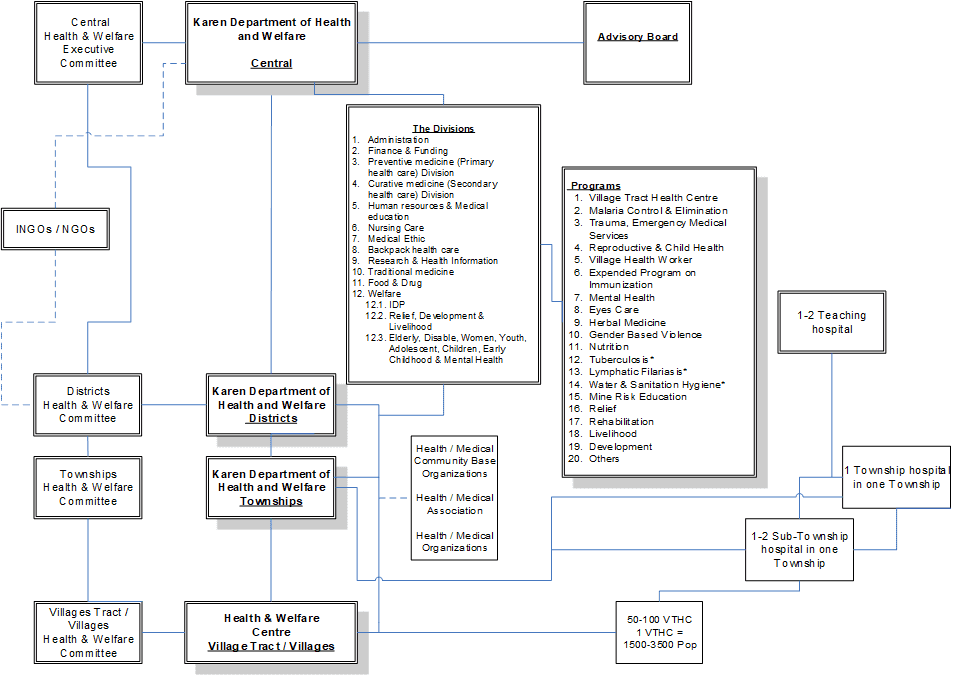Currently, KDHW has implementing primary health care at the village tract level through around 77 Village Tract Health Centers (VTHCs) and skills health workers in different categories such as Medics, Community Health Workers, Maternal and Child Health Workers (MCHWs) and Emergency Obstetric Care Workers (EmOCs) through ethnic health care training programs.
The lowest level of health workers based at VTHCs has received 9-month long training to serve the primary health care activities for both facility-based and outreach. Moreover, KDHW has recently expanded the secondary care level through four secondary care centers named as Taw Nor Teaching Hospital (TNTH), Kawthoolei Long-term Care Hospital (KLTCH), Win Ka Community Clinic (WKCC) and Kler Mu Clinic (KMC).
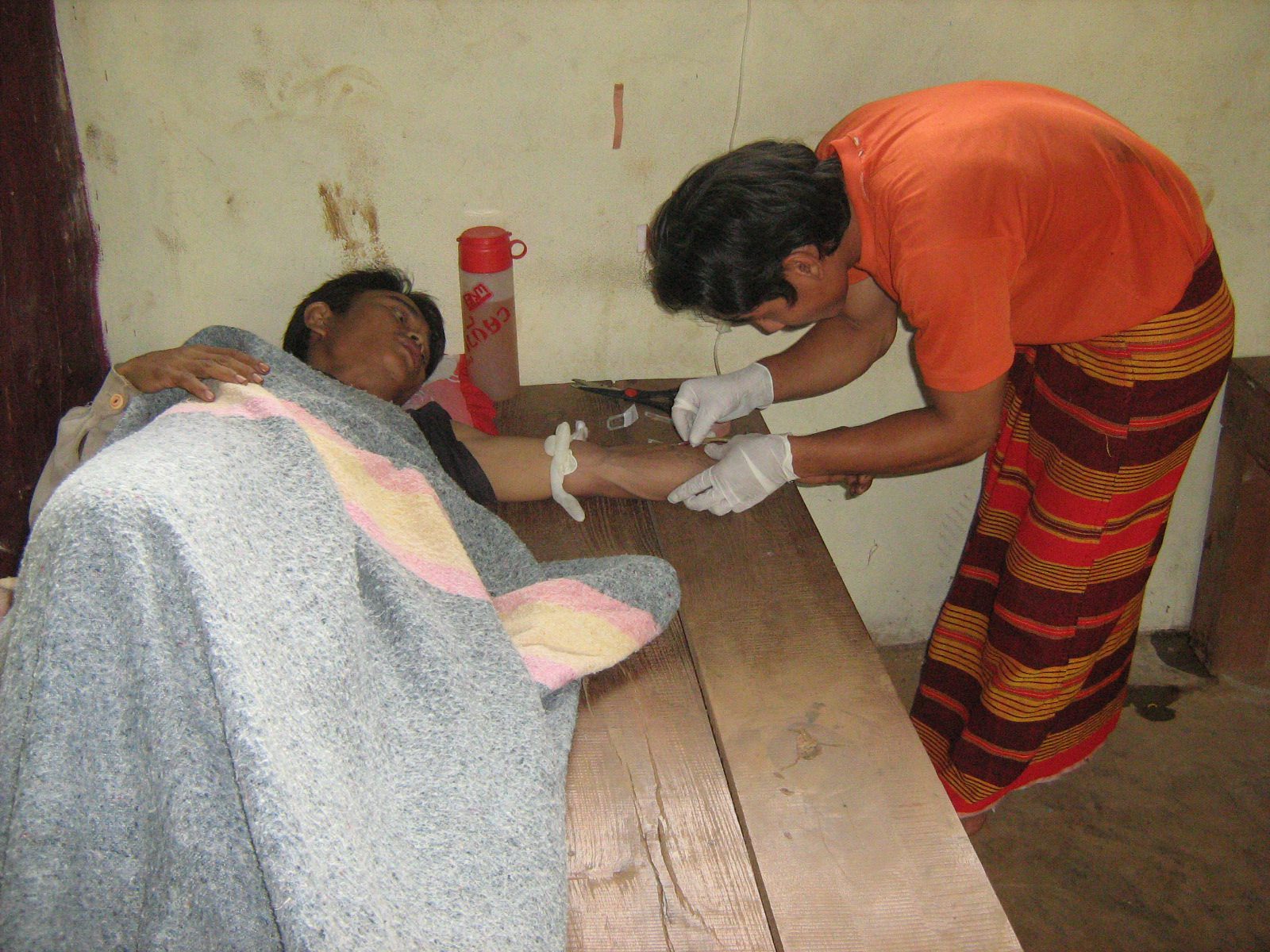
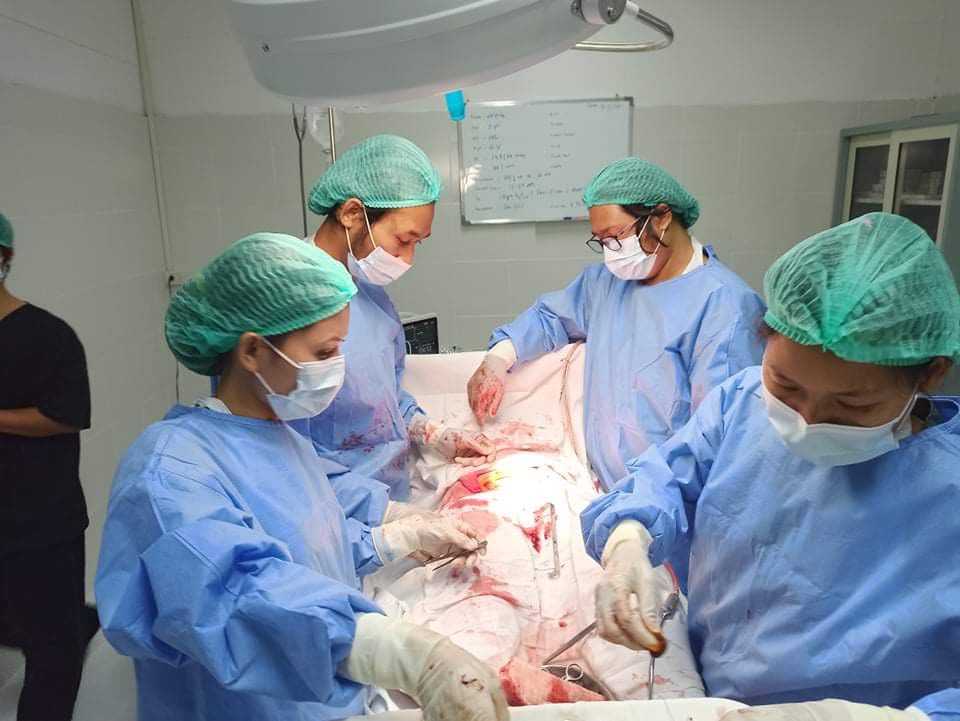
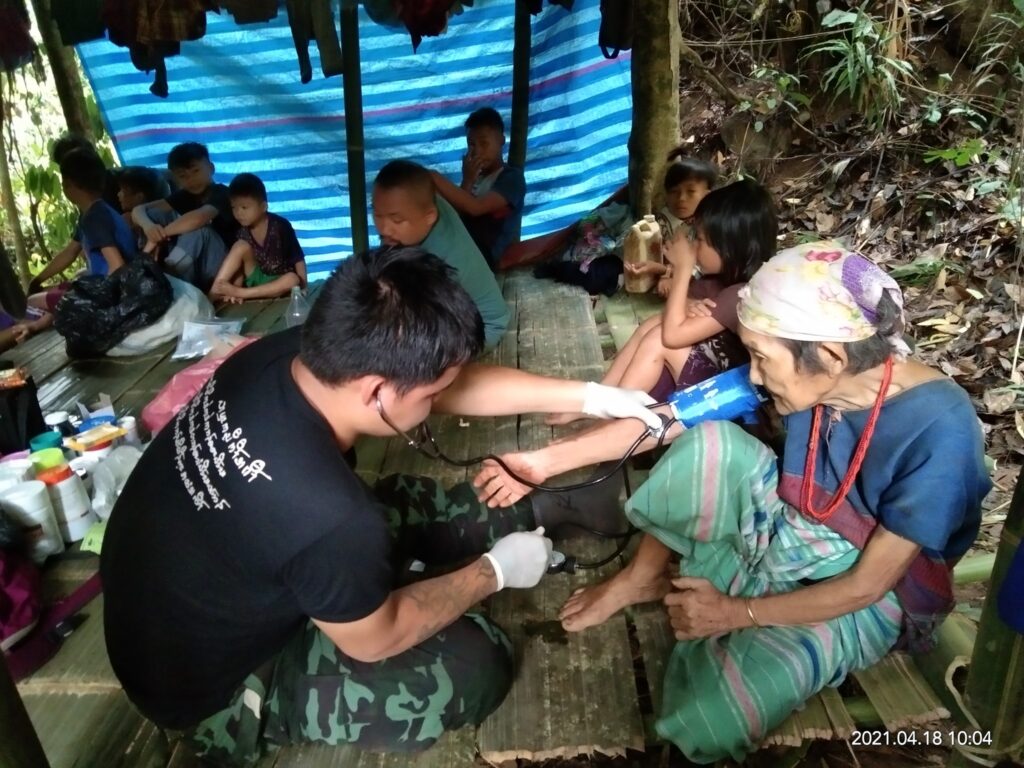
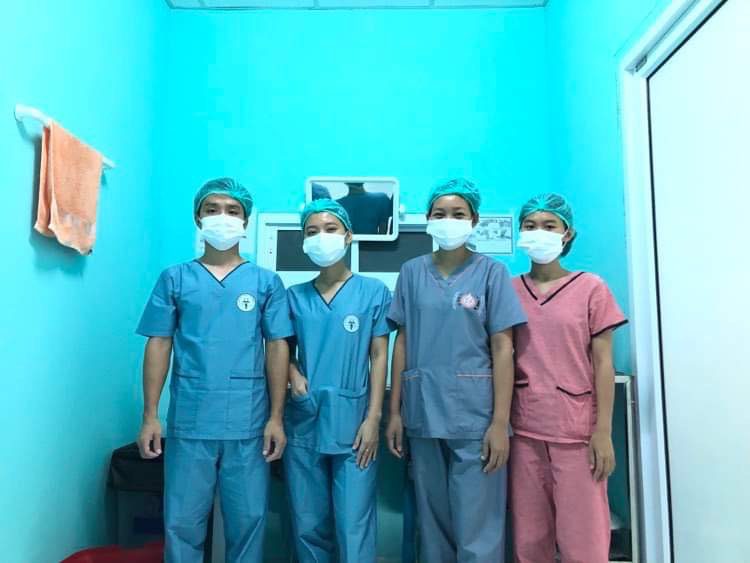
These health facilities and health workforce are under the direct management of KDHW. On the other hand, there are still other health facilities and health workforces which are implemented by other Ethnic Health Organizations (EHOs) such as health departments of BGF, KNU/KNLA/PC and DKBA and Community Based Health Organizations (CBOs) such as BMA, BPHWT, MTC in KNU controlled areas.
KDHW acts as the leading organization which collectively works with strong partnership with these EHOs and CBOs working in KNU controlled areas in the implementation of comprehensive primary health care. Moreover, KDHW is currently implementing the following health services and programs in KNU controlled areas with multi-sector approach and multi-stakeholder approach.
There are four main areas of KDHW health programs which are –
- Reproductive, Maternal, Neonatal, Adolescent and Child Health – including Safe motherhood, EPI, Child Health Program, Family Planning, GBV, PMTCT, Nutrition, and School Health
- Infectious Disease Control – including Malaria Control & Elimination, TB and HIV Control
- Specialized program – including WASH, Mine Risk Education, Emergency Medical Service, Mental Health, and Traditional Medicine, and
- Cross Cutting issues – including Organization Development, Health System Strengthening, Central Monitoring and Evaluation Unit, Health Information System including GPS, and Health Care Trainings.
KDHW has managed the health services and programs by different administration levels which are sharing the tasks in a decentralized approach. First, KDHW central offices mainly performed the fund management, supervision and monitoring health services, relationship with donors and partners and developing strategy. Second, KDHW district health offices in 7 KNU districts also play an important role to manage and monitor the health services in 25 townships underneath respectively. Third, KDHW township health offices directly supervise and manage the respective VTHC operation and health workers in their areas.
KDHW Central, District, Township, Village, Divisions and Program Structure Chart
